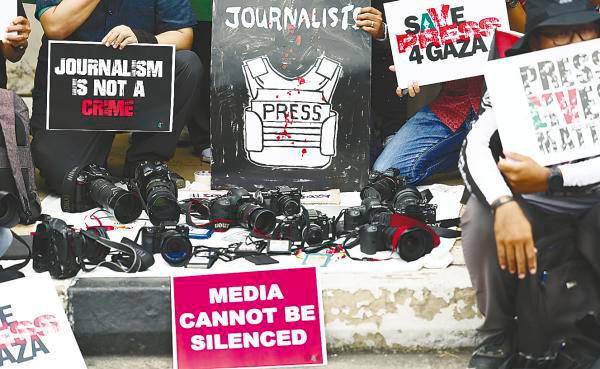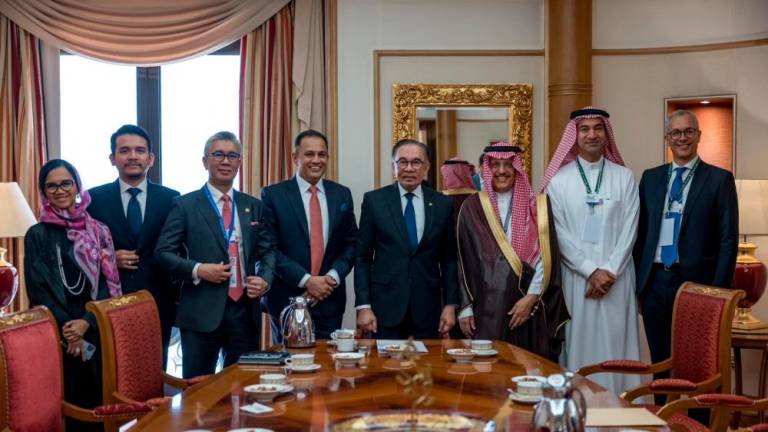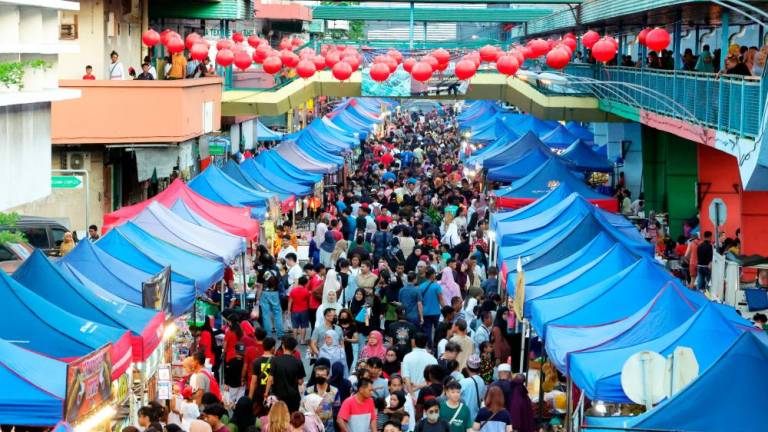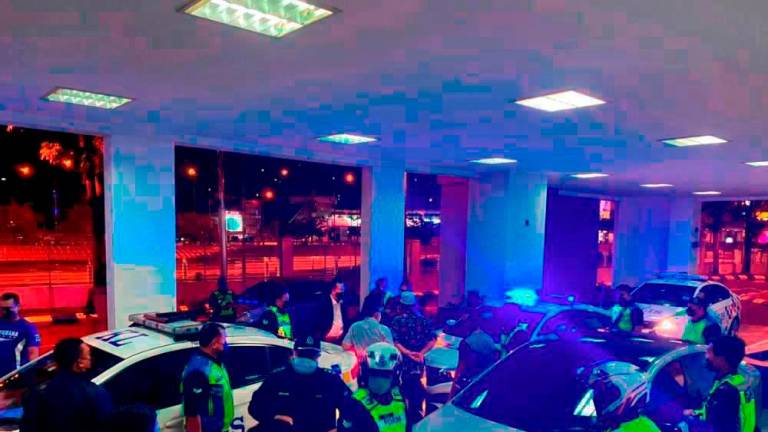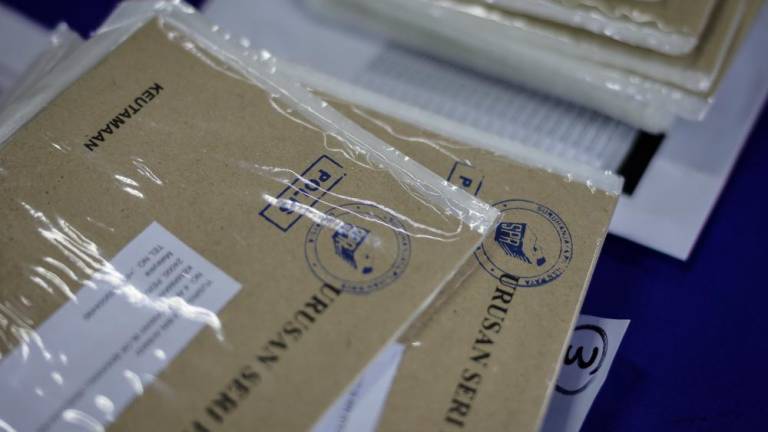ON Dec 29, 2023, South Africa filed a case against Israel with the International Court of Justice (ICJ), citing a breach of the United Nations (UN) Convention on the Prevention and Punishment of the Crime of Genocide (the Convention). The Malaysian Foreign Affairs Ministry and the Turkish Foreign Ministry supported this action.
Yet, the Application document (the Application), despite its crucial and horrifying details, lacks the attention it deserves. These details serve as vital reference points to understand the situation in Palestine and its global implications.
Reiterating the shocking civilian death toll from Israeli military operation in three months and compiling extensive evidence of Israeli crimes, South Africa’s submission loudly signals to the international community an urgent need to understand what is going on by broadening our perspectives, aiming to promptly halt ongoing atrocities and mitigate future bloodshed.
Essentially, South Africa seeks to protect its erga omnes rights as a Contracting Party to the Genocide Convention (under Article VIII, IX, any Contracting Party to the Convention can bring proceedings against another Contracting Party) as well as to fulfil its obligations to prevent the act of genocide (defined in Article I, II and III).
The Convention delineates genocide as a crime under international law irrespective of the context “of peace” or “of war” in which it takes place.
However, the symbolism and significance of this event go deeper.
The Application provides a “detailed factual account” that “draws in significant part on statements and reports by UN chiefs and bodies and non-governmental organisations as well as eye-witness accounts from Gaza, including Palestinian journalists on the ground, in circumstances where Israel continues to restrict access to Gaza by international journalists, investigators and fact-finding teams” all of this “to establish prima facie the existence of a dispute between the Parties relating to the interpretation, application or fulfilment of the Genocide Convention”.
The Application reveals that actions by the Israel Defence Forces (IDF) and the Israeli government extend beyond military necessity and amount to deliberate collective punishment, employing intimidation, humi-liation and outright terror against the Palestinian population.
Summarising 62 of 86 pages of the Application documenting these atrocities, especially those within the last three months, is daunting. This emotionally challenging document deserves widespread readership, though it is nearly impossible to read it without sobbing unless you have a heart of stone.
While the collected facts focus mainly on Oct 7, 2023, onwards, they are appropriately framed within the context of 75-years-apartheid, 56-years-occupation and 16 years of Gaza blockade.
The documented atrocities against Palestinians by Israeli forces can be broadly categorised as displaying blatant indiscriminate disregard for any form of life and overqualification for genocide definition by the Convention.
Additionally, the systematic widescale destruction and violence against civilians, coupled with numerous public statements (unambiguously interpreted as genocide-inciting rhetoric) by top Israel government officials, senior military figures and anecdotal IDF soldier testimonies (well-documented in the Application), suggest deliberate military policy to inflict humanitarian catastrophe in Gaza leading to intentionally adopted war tactics that appear rational, except, of course, lack any humane element and grossly violate the law of war.
As a deliberate military policy, the complete collapse of life-supporting infrastructure in Gaza works well for Israel – “nowhere is safe in Gaza” will urge civilians to flee anywhere except Gaza.
However, holding this crowd in a complete siege will intensify the horror and the urge to flee while also ensuring that it will quickly use up all the remaining life-supporting resources, leaving nothing for combatants - the perfect moment to ease the siege (stop bombing the borders), letting the shaken survivors, including Hamas and all the irregular formations, simply pour out (likely, the large mass to Egypt), greatly destabilising the region while creating civil unrests and more bloodshed.
Have we not seen these war tactics applied before? Take, for example, Mosul in Iraq.
Israel’s interests also seem to align closely with those of their influential ally. The proxy war in Ukraine, intended to benefit the US military complex and the troubled dollar, appears to have stalled, failing to produce the desired spillover effect into Europe.
Unashamed of lack of morality, the US is open about it: “If you look at the investments that we have made in Ukraine’s defence to deal with this aggression, 90% of the security assistance we have provided has been spent here in the US with our manufacturers, with our production, and that has produced more American jobs, more growth in our economy.” – Press statement by US Secretary of State Antony Blinken.
Only he forgot to mention how this will arrest US social welfare and economic growth in the long-term and fuel inflation to be shouldered by all the ordinary Americans versus the over-bloated corrupt establishment within its military-industrial complex. Hence, similar objectives are achievable by igniting wide-scale armed conflicts in the Middle East.
Moreover, given Israel’s destabilising tactics in the region, the US may have overestimated the potential for control of the Suez Canal (perhaps without realising the real risk of being outmanoeuvred here) as a means to counterbalance China in the Asia Pacific.
Meanwhile, if everyone around is preoccupied with internal bloodshed conflicts, Israel can find it opportune to assimilate the remaining Palestinian landscape into the “uni-ethnically” Israeli. This strategy prompted Israel to engage aggressively with neighbouring countries such as Egypt, Lebanon, Iran and Syria.
However, the US-Israeli plan hugely relied on speed to prevent information leaks from Gaza, hence, the intense bombardments, electricity cutoffs, destruction of hospital solar panels (sometimes along with the hospitals) and unprecedented killings of journalists and humanitarian workers.
Nevertheless, war cannot be fought on completely borrowed terms – Israel spent bullets and missiles faster than the US could supply, prompting US requests for “humanitarian” and “low-intensity” tactics to help Israel keep their face.
Plus, despite vigilant efforts, information from Gaza inundated social networks, causing a dramatic shift in public opinion.
Losing the information war often means losing on the ground, making South Africa’s Application crucial in this context.
The ICJ’s rulings are final but often lack enforceability, relying on the UN, which has a consistent track record of closing eyes on Israeli atrocities irrespective of the court’s decisions, reflecting decades of US-Israeli political exceptionalism and arrogant impunity.
Still, the ICJ can order emergency measures during the lengthy case, leading to the collapse of Israel’s plan and the nation itself if global condemnation continues growing, to which precondition is now well established.
Going to court and using the word “genocide” is, if nothing else, a powerful way to frame the global debate about a conflict, especially given the thickness and weight of evidence attached to it.
After all, there is the ICJ and the UN, but there is also the global community that reads the Application and sees things.
And there is also BRICS’s (intergovernmental organisation comprising Brazil, Russia, India, China, South Africa, Egypt, Ethiopia, Iran, Saudi Arabia and the United Arab Emirates) growing popularity and influence.
Countries from the Global South, with histories of enduring colonialism, including genocide and apartheid, are lining up to join BRICS, the platform originally designed to promote international law, equality, mutual respect, cooperation, collective decision-making and UN reform for increased efficiency.
Symbolically, South Africa stands as a vibrant representative of the Global South, ensuring the Application naturally gains traction within this bloc.
Thus, Europe, being overflooded with migrants from the Global South, especially from Muslim countries (a potential catalyst for those seeking to incite widespread armed unrest), must stay alert. And the European Union should start charting their destiny instead of following the US instructions that already led them into terrible economic doldrums.
In the same vein, Middle Eastern countries should remain extra vigilant now and work diligently on the diplomatic level to extend extraordinary cooperation in refraining from reacting to US-Israeli provocation.
People who are fed-up with US-Israeli political exceptionalism and excessiveness must no longer die in socially engineered civil unrest in Egypt, Iran, Iraq, Jordan, Lebanon, Syria or Yemen while saving the US economy.
Through the arbitrary invocation of humanitarian “pauses” and “low intensity” war, the whole world witnessed that Israel is also toothless without US support.
Therefore, the best way to “retaliate” is not to allow the US to achieve its goal – wide-scale bloodshed to save its corrupt establishment within the military-industrial complex.
Allow the natural decadence, reformation and transformation towards living on a sustained basis without the benefit of war, to take place.
This will benefit all, including ordinary Americans whose tax money can be redirected towards productive civilian capital, combating inflation and providing better focus on other domestic needs.
The writer is the founder of Emir Research, a think tank focused on strategic policy recommendations based on rigorous research. Comments: letters@thesundaily.com



